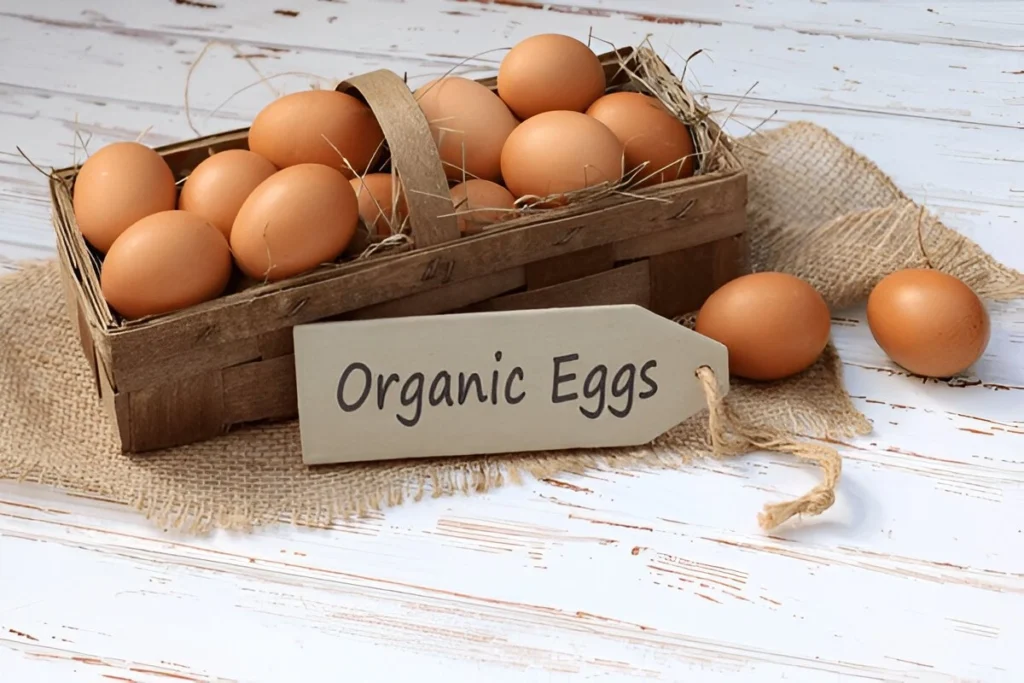What Pasteurization Means for Eggs
Pasteurization is a heat-treatment process designed to kill harmful bacteria such as Salmonella without cooking the egg. The internal temperature of the egg is carefully raised to around 140°F (60°C) for several minutes, effectively reducing microbial risks.
Understanding Organic Labeling in Eggs
Before diving deeper into pasteurization, it’s vital to understand what “organic” really means in the egg world. An egg labeled “organic” doesn’t guarantee any safety process like pasteurization. Rather, it assures you that the hens:
- Are fed a 100% organic, vegetarian diet
- Are not given antibiotics or hormones
- Have access to the outdoors
- Live in cage-free conditions
While these practices often correlate with ethical farming and environmental stewardship, they do not include pasteurization as part of the certification process.

Pasteurized vs. Unpasteurized Eggs
| Feature | Pasteurized Eggs | Unpasteurized Eggs |
|---|---|---|
| Safety | Heat-treated to kill pathogens | Risk of Salmonella present |
| Shelf Life | Slightly longer | Shorter, especially unrefrigerated |
| Usage in Raw Recipes | Safe to use | Risky without cooking |
| Nutrient Retention | Slightly affected | Retains all original nutrients |
How Are Eggs Pasteurized?
The most common method is hot water immersion, where eggs are gently warmed in a controlled environment. Another method involves hot air systems. The goal is to neutralize pathogens without cooking the egg’s interior.
Are All Organic Eggs Pasteurized?
No, they are not. There’s no legal requirement in the U.S. mandating pasteurization for organic shell eggs. Unless the carton explicitly states it, assume they are not pasteurized.
Are Organic Eggs Pasteurized at Grocery Stores?
Some are, but they’re typically labeled and marketed as specialty products. Look for brands like Davidson’s Safest Choice and always verify labeling.
Is Pasteurization Required for Organic Eggs?
In the U.S., it is not required for shell eggs. In Japan and parts of Europe, eggs are more likely to be pasteurized due to food safety norms.
The Benefits of Pasteurized Organic Eggs
- Safe for raw consumption
- Better for vulnerable groups
- Reduced contamination risk
- Longer shelf life
Can You Eat Raw Organic Eggs?
Yes, but only if they are pasteurized. Otherwise, there’s a risk of Salmonella infection.
Pasteurized Egg Myths Debunked
- “Pasteurized eggs are less nutritious.” False.
- “They taste different.” Not noticeably.
- “Pasteurization is only for commercial use.” Wrong.
How to Check if Eggs Are Pasteurized
Always read the label. Look for the word “pasteurized” and check the USDA certification if available. You can learn more about egg pasteurization and safety from the USDA’s official page on egg safety.
Which Brands Sell Pasteurized Organic Eggs?
- Davidson’s Safest Choice
- Organic Valley (liquid eggs)
- Eggland’s Best (check product details)
How to Pasteurize Eggs at Home
- Place eggs in a saucepan, cover with water.
- Heat to 140°F (60°C) and hold for 3 minutes.
- Cool quickly in ice water.
Use a precise thermometer for safety.
Salmonella and Pasteurization
Pasteurization can eliminate up to 99.999% of Salmonella, significantly lowering foodborne illness risk. For more details on how to keep eggs safe, check out this helpful guide from Foodsafety.gov on Salmonella and Eggs.
Pasteurization in Commercial Baking
Used in kitchens for raw or lightly cooked egg dishes. Helps meet health codes and ensure customer safety.
Pasteurized Organic Eggs in Recipes
- Hollandaise sauce
- Mousse and tiramisu
- Sunny-side-up or poached eggs
Egg Grades and Pasteurization
Grade A or AA eggs are not necessarily pasteurized. Grades indicate quality, not safety level.
Organic vs. Cage-Free vs. Free-Range
| Label | Meaning | Pasteurized? |
|---|---|---|
| Organic | Fed organic diet, no antibiotics | Sometimes |
| Cage-Free | No cages, indoor living | Rarely |
| Free-Range | Outdoor access | Rarely |
| Pasteurized | Heat-treated for safety | Always |
Nutrition Facts: Pasteurized vs. Raw Eggs
Nutritionally speaking, there’s little to no difference. Key nutrients like:
- Protein (6g per large egg)
- Vitamin D
- B Vitamins
- Choline
remain intact. The only loss might be a slight reduction in certain heat-sensitive vitamins like B12, but the difference is minimal.
Should You Always Choose Pasteurized?
If you consume raw or undercooked eggs or live with high-risk individuals, yes. Otherwise, it depends on your usage and risk tolerance.
Who Should Absolutely Use Pasteurized Eggs?
- Pregnant women
- Infants and toddlers
- Seniors
- Immunocompromised people
The Cost of Pasteurized Organic Eggs
Yes, they cost more often 30-50% higher than regular eggs. But when you consider the:
- Reduced risk of illness
- Extended shelf life
- Peace of mind
Pasteurization Equipment Used by Farmers
Most organic farms don’t have the tools they need to pasteurize eggs on site. Due to the high cost of the equipment, many makers work with outside manufacturers. Because of this, processed organic eggs are not as popular and are only made in smaller amounts.
International Egg Safety Standards
Because it’s seen as inappropriate to eat raw eggs in Japan, most eggs are boiled or treated. It is less usual to pasteurize eggs in Europe because of strict vaccine programs for hens. The US counts on processing that people choose to do on foods other than liquid egg product. For comprehensive guidance on egg storage and handling, visit the FDA’s official page on What You Need to Know About Egg Safety.

What Happens During Pasteurization?
On a tiny level, the egg white’s proteins start to change slightly not enough to cook, but just enough to make dangerous bacteria less stable. There it is: science keeping you safe in the background.
Do Organic Farmers Oppose Pasteurization?
Some people do. They say that pasteurization adds a step to the process that takes away from the “natural” nature of organic growing. Others like it because it gives them a better idea of how safe their products are.
Egg Pasteurization Lawsuits and News
Salmonella cases caused by eggs that haven’t been cooked have led to high-profile claims. Because of these events, many brands and stores have decided to follow pasteurization rules, even if they are not forced to by law.

Final Thoughts
No, not by default. You must look for the “pasteurized” label. Pasteurized organic eggs offer both ethical and food-safe benefits perfect for raw dishes or vulnerable family members.


